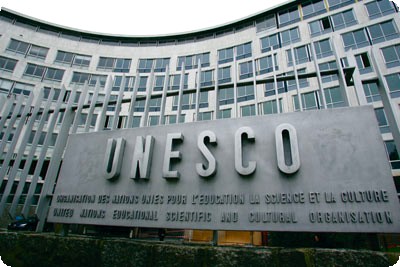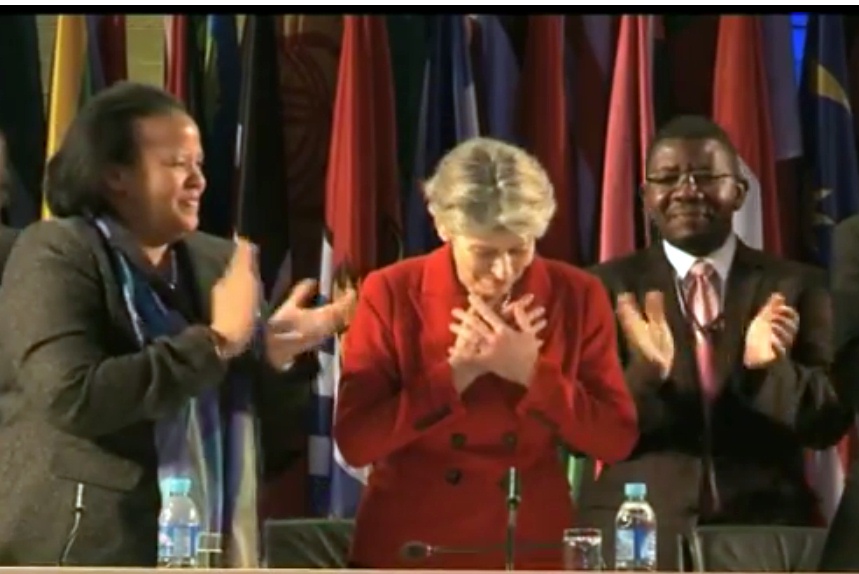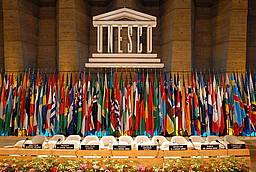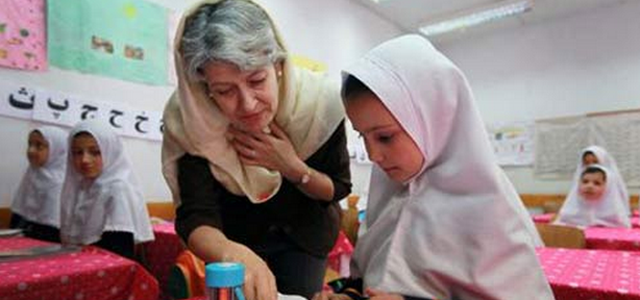UNESCO has a very complex mission of global importance. It was designed with a weak legislative system and a strong chief executive officer (CEO) and management team. Unfortunately the process by which its CEO is selected would shame a mid size corporation.
It is obvious that there were people in the world better qualified to challenge Irina Bokova than were actually nominated. The election held in 2009 very nearly ended in a disastrous choice. The organization deserves better; the people served by UNESCO deserve better. Ideally the leader of UNESCO would be a public intellectual with international reputation, multilingual, with experience in leadership of a large educational, scientific or cultural organization, who also has diplomatic experience.
Here are some suggestions for reform:
- Reduce the focus on geographic rotation. Currently there is an informal agreement that the position of Director General will not be dominated by any one region. Block voting pits North against South and continent against continent. Certainly there are outstanding candidates from all regions, but the geographic origin of the candidate should surely be a secondary criterion to the quality of leadership that the candidate could provide.
- Create a search committee. Currently, candidates are nominated by national governments; many member states with great potential candidates make no nomination, some nominate unqualified candidates. A good search committee with suitable support could do better. Perhaps UNESCO’s partner organizations from civil society could provide several distinguished educational, scientific, cultural and communications leaders who would serve on such a committee. Member states interested in improving UNESCO’s leadership might chip in to finance the services of a professional recruiting firm to provide support. The process should thoroughly vet any candidate before recommending him/her to the Executive Board.
- Let the public observe the selection process: Currently, all is done in secret. Post the CVs and vision statements of candidates recommended to the Executive Board on the Internet. Hold debates among them, as candidates for the U.S. president hold public debates. I have suggested that National Commissions could sponsor the debates, selecting distinguished panelists to pose questions to the candidates. The debates could be streamed on the Internet. Currently the Executive Board interviews the candidates in private; those interviews should also be streamed on the Internet.
- Involve the National Commissions: UNESCO’s Constitution calls for each member state to create its own national commissions, which among other duties ks to advise the government on UNESCO matters. With information on the candidates the national commissions, representing the intellectual communities of their countries, could advise their representatives on the Executive Board and General Conference on the preferred candidates.
- Fight corruption more effectively: The U.S. Ambassador reported in a secret cable after the 2009 election that a person had been barred from UNESCO’s offices for lobbying inappropriately. A person was reportedly seen in the building with an envelope stuffed with money. It may be that governments will continue to make “back room bargains” trading votes, etc. but to the extent possible the election should be open and fair. At the least, sanctions should be imposed on those who seek to corrupt the selection process.
- Vote openly: Currently the Executive Board votes by secret ballot. Legislative bodies around the world vote in public: constituents can see for whom their representatives vote. In that way the members of the Executive Board can be held responsible for voting the interests of the people they represent. The votes could be posted with the tallies on the Internet in real time. Indeed, it might well be that National Commission members and the press would then follow the UNESCO elections avidly.
The four years until the next election of a UNESCO Director General could be used to revise the election procedure. Irina Bokova, who presumably will not run for a third term, would be a disinterested leader to manage the needed reforms. Surely a number of national governments interested in assuring the quality of UNESCO’s leadership could combine to promote the reforms.









